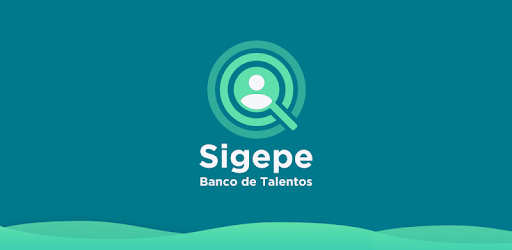|
If you are having trouble viewing this email, open it with your internet browser,
download the PDF version
or contact us.
|
 |
| #42 - February 2022 |
| PDF version - Manage your subscription - Search - Archives |

|
|
vision RH is a newsletter published by the French Directorate General for Administration and the Civil Service (DGAFP). It draws on information sources and reports issued by public administrations, the private sector, international organisations and the press, in several different languages. It aims to provide a broad view of current human resources and civil service initiatives.
|
|

|

|

|

|

|
| France: first ever employer branding campaign for public service | |||||
|
The #choisirleservicepublic (“Choose Public Service”) campaign is part of an urgent effort to counter a growing lack of interest, especially on the part of young people, in pursuing a career in the French public sector, despite the opportunity it presents to engage with issues they care about. In a first, this new online platform is designed to provide a one-stop shop for job postings and information on occupations, recruitment exams, opportunities and careers within the three civil service branches. |
|||||
|
|||||
|
|
|||||

|
|||||
| Belgium: a scientific advisory committee on HR issues | |||||
|
The Belgian federal government will create a scientific advisory committee focused on improving existing HR policies by contributing improvements that have been proven effective by academic studies and research. The committee’s 12 researchers will be tasked with formulating advice in three areas: tools, methods and strategies to facilitate recruitment, guidance and assessment; important trends and innovations; and ethics. |
|||||
|
|||||
|
|
|||||

|
|||||
| Canada: “HR Innovation” series | |||||
|
A series presenting various HR initiatives is in the works to showcase the Canadian federal public service’s culture of innovation. The team in charge of the project will invite HR professionals to speak about their journey and experience, including the challenges and opportunities they have encountered along the way. Each session of the series is a 60-minute online interactive experience taking the format of armchair discussions or presentations followed by Q&A sessions. « Highlight new ways of thinking and different mentalities to foster innovation in a ministry »
|
|||||
|
|||||
|
|
|||||

|
|||||

|

|
| Sweden: generic onboarding for new civil servants | |||||
|
Given the wide latitude public employers have in hiring and training their staff, the Swedish government will implement a generic onboarding programme that all new civil servants will be required to complete as of 2023. It will cover legal fundamentals and the essential values, e.g. the public interest, that are key to maintaining citizens’ trust. |
|||||
|
|||||
|
|
|||||

|
|||||
| Italy: “Pa 110 e lode”, an academic training programme for civil servants | |||||
|
As part of the national strategy on developing employees’ professional qualifications under the Italian recovery plan, civil servants will be given easier, more direct access to an array of degree courses offered by numerous partner universities. The initiative aims to enable those who were unable to pursue higher education before they began working to do so, for the benefit of their career. |
|||||
|
|||||
|
|
|||||

|
|||||
| United Kingdom: expanding career opportunities | |||||
|
British Civil Service’s recently launched “Levelling Up” programme is working to make more career opportunities available for people across the UK. By increasing the number of second headquarters for departments, it will be possible for civil servants to grow their careers without having to be based in Greater London – a virtual requirement before the programme’s inception. « We have ambitious plans to improve career opportunities across the country, including at the highest level »
|
|||||
|
|||||
|
|
|||||

|
|||||

|

|
| Ireland: video advertisement challenge for the public sector | |||||
|
The Irish recruitment website Publicjobs.ie has launched a competition that gives students the opportunity to create an engaging message aimed at sparking youth interest in public sector careers. Post-primary students are challenged to express their creative, digital and communication skills to create a 30-second video advertisement pitching the public sector as an attractive career pathway to their fellow students. |
|||||
|
|||||
|
|
|||||

|
|||||
| Europe: additional countries pass whistleblower protection laws | |||||
|
Although all Member States were required to enact the EU Whistleblowing Directive into national law by 17 December 2021, three countries (Cyprus, France and Latvia) began complying with the Directive early this year. Five other Member States enacted such legislation in 2021 (in chronological order of adoption): Denmark, Sweden, Malta, Portugal and Lithuania. |
|||||
|
|||||
|
|
|||||

|
|||||
| Germany: towards more women in digital careers | |||||
|
On a mission to combat clichés and self-limiting beliefs, ITZBund, the German federal IT service provider, has launched a campaign with the goal of encouraging women to apply for the myriad jobs offered by the agency. Featuring women’s career stories, the campaign stresses that the public sector – as an equal opportunity employer – is open to women, even those who may be hesitant to apply. « Today's IT professionals must know how to communicate and work in a team, two qualities particularly attributed to women »
|
|||||
|
|||||
|
|
|||||

|
|||||

|

|
| France: an educational game and a podcast on teleworking | |||||
|
There are ways to help employees adjust to working from home that do not involve practical guides and factsheets. In France the University of Lorraine developed, for example, an educational game in which players become a manager. In addition, the podcast Télébox, produced by a multidisciplinary inter-ministerial team, hosts experts who provide useful insight and advice. |
|||||
|
|||||
|
|
|||||

|
|||||
| Spain: launch of wage negotiations | |||||
|
Unions and the Spanish government recently set a timetable for a new round of negotiations on pay rises. The decision to hold negotiations comes as consumer prices have been skyrocketing over the last few months. Such topics as digital transformation, internal promotion, mobility, career development and retirement will also factor into the agreement. |
|||||
|
|||||
|
|
|||||

|
|||||
| Australia: MPC, body with reviewing workplace actions and decisions | |||||
|
The primary remit of the Australian Merit Protection Commissioner, an independent statutory office holder, is to ensure that promotions and other workplace decisions comply with the legislation. The official conducts reviews in various public service departments, investigates complaints and assists HR professionals. A website provides resources such as case studies explaining the reasoning for their final recommendations. « Contribute to safe, efficient and harmonious workplaces through our review, complaint and investigation duties »
|
|||||
|
|||||
|
|
|||||

|
|||||

|

|
| Responding to quest for meaning is guiding Nestlé’s new HR policy | |||||
|
Shifting the focus away from cultivating career development opportunities and a favourable working environment, a growing number of employees today want to join their employer in being active, engaged members of their community (1) and a force for good. The food giant Nestlé has accordingly pledged to balance corporate social responsibility (CSR) and profit. After debuting a new employer branding campaign in France under the slogan “Place à l’action” (“Let’s Take Action”), the multinational company is supporting several employee engagement communities: • “Nestlé C’est Vous” (“You Are Nestle”) brings together employees and managers committed to such matters as diversity, disability, sexual orientation and social origin • “Je te don[NES]” (“I Give Back”) is for employees wishing to donate either a portion of their wages by rounding up their pay slip or some of their time and skills to Nestlé-supported non-profits • “InGenius” provides passionate innovators with the opportunity to take part in ideation challenges to develop new products, processes or services across the Nestlé company The purpose of “Nestlé Thinks YOUth” is to involve employees in strategic decision-making in a tangible way by allowing them to serve as in-house representatives. The programme is made up of two groups: a junior executive committee which discusses CSR-related decisions and makes alternative suggestions, and 13 ambassadors who keep company employees abreast of the initiative’s work.
|
|||||
|
|||||
|
|
|||||

|
|||||

|

|
| Brazil introduces "talent database" to spur public service hiring | |||||
|
With slightly under 600,000 civil servants (a figure that has been steadily declining since 2011), the federal government (1) of South America’s largest nation has launched a skills management portal to increase its organisational responsiveness. SouGOV was created as part of the Brazilian government’s human resource management modernisation programme. Active and retired civil servants can interact with the HR department through a dedicated website and mobile app. To date, 40 different features are available. For example, the government has been touting its new talent database “SIGEPE Banco de talentos” as a way to match active civil servants with the right job offers and stimulate professional mobility, which has become a must in an increasingly competitive job market. .
Active civil servants can voluntarily enter details about their education and work history. Other useful information (fields of expertise, external qualifications and geographic preferences) can be added as well. After this information is submitted, the system generates a standardised CV that is saved in a dedicated database, which enables: • recruitment offices to efficiently narrow down the candidates who meet the specific job requirements of the position and contact them • registered users to be the first to receive job announcements (before they are posted on the job board) as selected by an algorithm based on the information they provided As of September 2021, three years after its launch, 100,000 accounts had been created. Owing to the COVID-19 pandemic, the Secretariat for Personnel Management and Performance of the Ministry of Economy (which develops HR policy) has made registration mandatory for all job applicants. The database has become the ultimate point of contact between departments looking for talent and civil servants seeking new opportunities. However, for the tool to remain effective, jobseekers must make sure to regularly update their online profile. As evidenced by the numbers, the talent database has helped to optimise the distribution of talent within ministries, institutions and their satellites across Brazil by advertising civil servants’ skills.
|
|||||
|
|||||
|
|
|||||

|
|||||

|
|
Share
|
||||
|
||||
| SUBSCRIBE - UPDATE YOUR SUBSCRIPTION - ARCHIVES - RSS - UNSUBSCRIBE |
|
French Directorate-General for Administration and the Civil Service (DGAFP)
Publication Manager: Nathalie COLIN Managing Editor: Nathalie GREEN Editor-in-chief and Autor: Jean-François ADRIAN Layout and graphic design: Jean-François ADRIAN and Aphania. The texts of the publication do not reflect the point of view of the DGAFP
In accordance to the French Act n°78-17 of 6 January 1978 on information technology, data files and civil liberties and to the european General Data Protection Regulation (GDPR), your personal data is stored securely and you are entitled to access, correct and delete them. To do so, you should send an e-mail to (contact-visionrh@kiosque.bercy.gouv.fr) or write to DGAFP: 139, rue de Bercy - 75012 Paris; France.
The links to a machine translation are accessible with the only Chrome browser Reproduction is authorized with mention of the source © DGAFP 2022 / N° ISSN: 2606-7528. |
|
|





